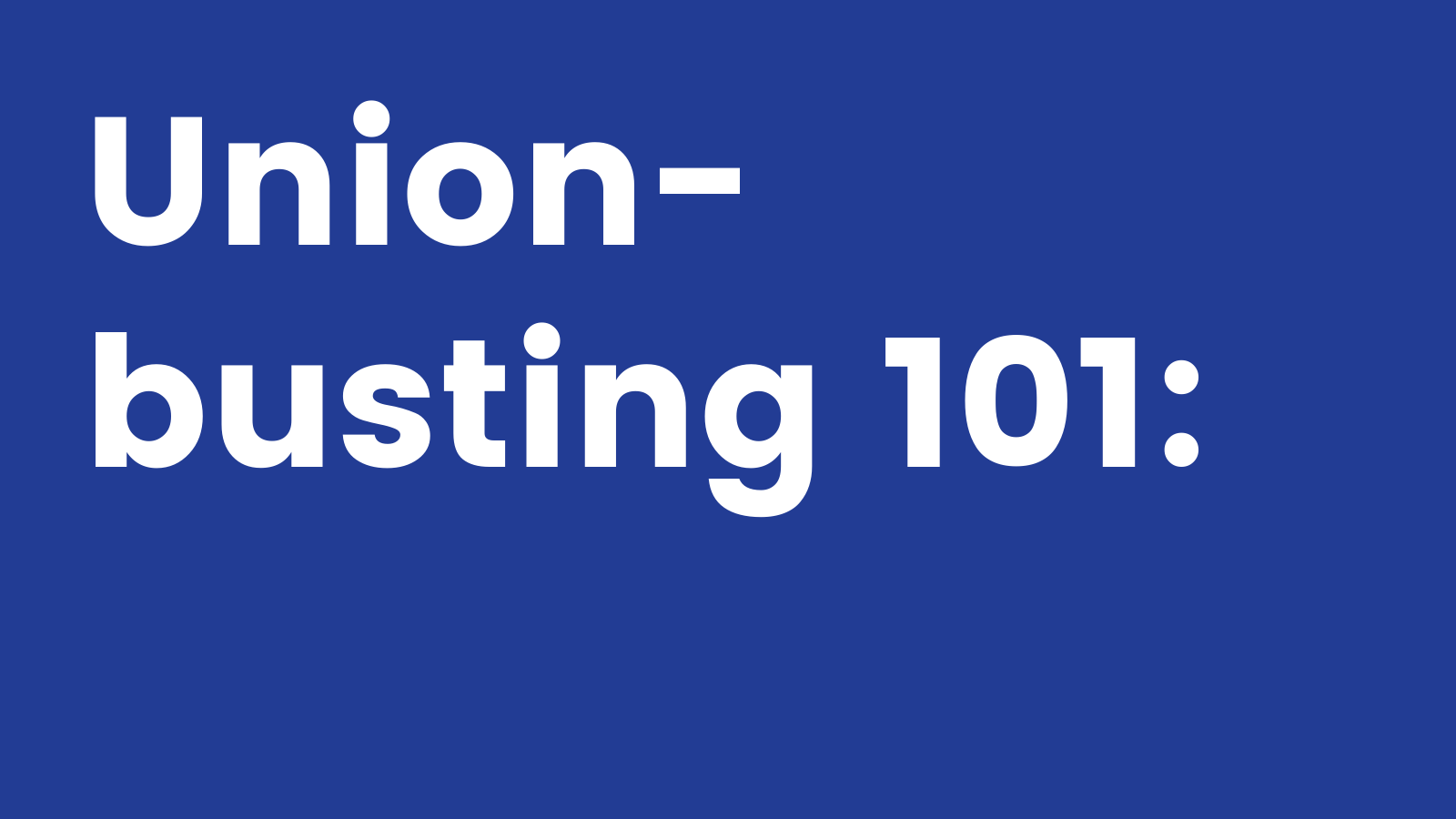Fear, gaslighting, and emotional manipulation are powerful tools.
Middle managers, bosses, and outside lawyers will use them to try to stop an organizing campaign in its tracks. It's an unfortunate and often unavoidable part of unionizing. However, anti-union rhetoric and strategies haven’t changed all that much in recent years. They’ve become predictable.
We’ve put together 7 articles below that should leave you with a roadmap of how to break through the nonsense and build collective power.

- Common anti-union arguments, debunked - Some of their arguments are pretty convincing because they’re designed to appeal to your emotions. Dig a little deeper, however, and it becomes easy to poke holes in these misinformation campaigns. That’s why you won’t need millions of dollars to build support for unionizing. You’ll just need the facts. Read about them in “Common anti-union arguments, debunked”.
- A brief history of union-busting - For the past 150 years, U.S. employers have been waging a subtle — and not-so-subtle — war against workers through union-busting efforts. The once-violent conflicts between workers and employers during the Second Industrial Revolution have, on the whole, turned into much more covert and subtle efforts in recent history. However, union-busting efforts today are arguably more impactful and widespread than they were more than a century ago. Learn about the pinkertons and scabs of yesteryear in “A brief history of union-busting”.
- Union-busting: what to expect and how to respond - Union-busting has been a lucrative industry dating back to the infamous Pinkertons. Today’s tactics have changed to include captive audience meetings, one-on-ones, and mass (e)mails but the goal is the same - coerce and intimidate workers out of organizing. Read more about how to fight these bad faith efforts in “Union-busting: what to expect and how to respond”.
- Know your law firms: key anti-union players - If you find out that your boss has hired outside legal counsel, now is a good time for you and your organizing committee to prepare your coworkers against potential pushback from management. If you happen to find out that these unknown consultants come from the likes of Jackson Lewis, Proskauer Rose LLP, Kauff McGuire & Margolis LLP, Ogletree Deakins, or Littler Mendelson LLC, then get ready. Know you're in for a fight and read about who you’re dealing with in “Know your law firms: key anti-union players”.
- How to protect yourself when organizing a union - So what exactly can management or your coworkers legally do during a campaign? We know what’s at stake - that’s why we’ve broken it down so you can understand your rights and what actions to take to protect them. Get a sense of your legal safeguards while organizing on the job in “How to protect yourself when organizing a union”.
- Employer retaliation: getting fired for unionizing - Federal law guarantees you the right to organize your workplace. However, the reality of at-will employment for non-union staff makes things more complicated. Read about what your boss can and can’t do in “Employer retaliation: getting fired for unionizing”.
- Union dues explained - Dues are a regular payment from members that fund their union. They finance crucial union operations like contract negotiations and enforcement, organizing, and member-driven programs. It's one of the most common questions about unionizing so we’ve broken down the basics in this article; “Union dues explained”.



